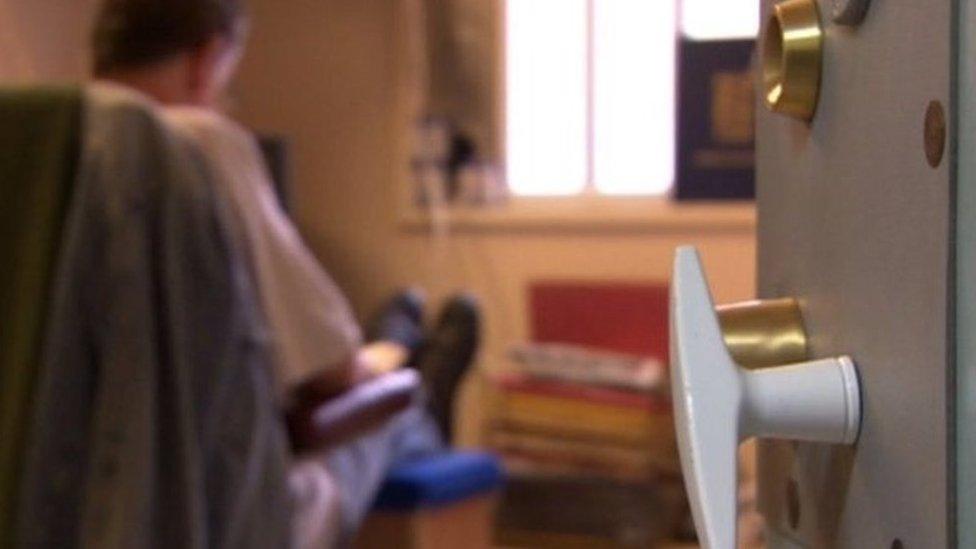Sex offence researcher 'was bullied' by Ministry of Justice
- Published

The report criticised the scheme which was then the main sex offender treatment programme for England and Wales
The Ministry of Justice (MoJ) knew a sex offender treatment programme increased the likelihood of reoffending, five years before it was scrapped, a tribunal has heard.
Research was given to officials in 2012 but the scheme was only ended in 2017.
The details were revealed in an employment tribunal case brought by analyst Kathryn Hopkins, who claims the MoJ "bullied" her following her study.
The MoJ denies the claims and says the initial research had to be reviewed.
The case centres on the Sex Offender Treatment Programme (SOTP), a flagship rehabilitation scheme which had been used in various formats in England and Wales since 1991.
The programme involved group sessions with prisoners and those serving community sentences, as well as cognitive behavioural therapy to increase the offenders' motivation to steer clear of crime.
The MoJ commissioned Ms Hopkins, a senior researcher in its analytics unit, to study the effects of the programme, which had been used since 2000.
Her results, presented to officials in February 2012, suggested men who took part in the scheme were more likely to reoffend than those who didn't.
In legal documents submitted to the Central London Employment Tribunal, Ms Hopkins says she was "met with anger and disbelief and told that she must have made a mistake".
Over the following months, her research was reviewed, reworked and checked.

Lawyers for the Justice Secretary David Gauke said there was a "breakdown in relations" between Ms Hopkins and her managers
Ms Hopkins, who is representing herself at the tribunal, claims officials "planned to minimise or reverse" the results and repeatedly refused requests to publish them under the Freedom of Information Act, because there were "vested interests" in the scheme's success.
"The negative research results had alarming legal ramifications for the MoJ," her legal papers say.
"If the SOTP was harmful, there was scope for victims of sexual abuse, whose perpetrators had taken the course, to sue for damages," adding that sex offenders could also have taken legal action.
Ms Hopkins raised concerns internally about the department's refusal to publish the results and eventually left the MoJ in September 2016.
She says the department's behaviour towards her resulted in the "destruction of her reputation" and caused her "severe and lasting psychological distress".
She is seeking compensation, damages for loss of income and costs.
In June 2017, the MoJ eventually published findings showing that 2,500 men who had taken part in the SOTP were slightly more likely to commit further offences than those who had not and revealed that the programme had been stopped three months earlier.

Treatment programmes for sex offenders
Sex offenders can receive therapy in prison and in the community
Core programme devised in 1992 - but revised over years as evidence of effectiveness complex
Main SOTP scheme rolled out to more prisons in 2000s - but now found to have failed
Two new schemes have been accredited as replacements, having been devised from latest research

In its written submissions, lawyers for Justice Secretary David Gauke said there were "serious concerns" about Ms Hopkins' initial study and further work was needed to ensure the methods used were "robust".
"During this period, [Ms Hopkins], in the view of her colleagues, lost perspective on her role and on her research," the document says.
It adds that it led to a "breakdown in relations" between Ms Hopkins and her managers.
The department denies that she was unfairly treated and is contesting her claims.
The tribunal hearing is expected to continue next week.
- Published30 June 2017
- Published24 January 2019
